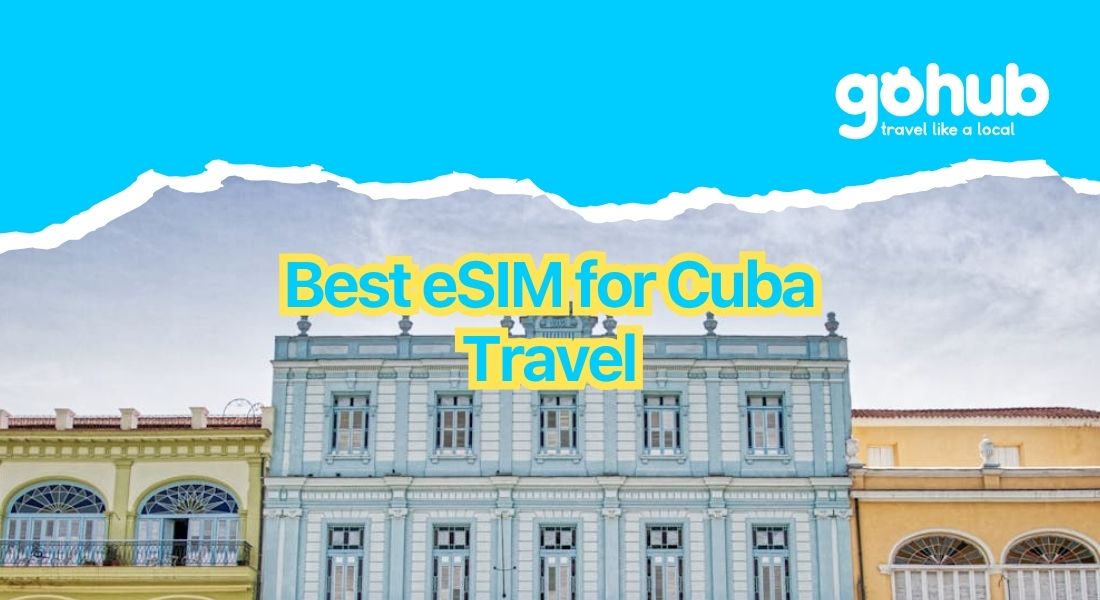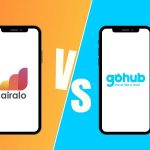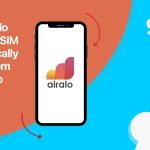Planning your Cuba adventure? Whether you’re dreaming of classic cars in Havana or white-sand beaches in Varadero, staying connected is a lot trickier than you might think.
Roaming charges from your home carrier? Outrageous.
Relying on public Wi-Fi? Slow, spotty, and only available in specific hotspots.
Buying a local SIM? Long lines, confusing registration, and often not tourist-friendly.
That’s where the eSIM for Cuba travel comes in — a digital solution that lets you skip the chaos and get online the moment you land. With the right eSIM, you can share your journey, stay in touch with loved ones, and access maps and bookings without the stress of SIM swaps or Wi-Fi hunts.
In this guide, we’ll walk you through everything you need to know about using an eSIM in Cuba in 2025 — from compatible devices and network quirks to the best providers, data plans, and smart traveler tips. Whether you’re here for five days or five weeks, you’ll be ready to connect like a pro.
I. Why eSIM Is the Smartest Option for Travelers in Cuba
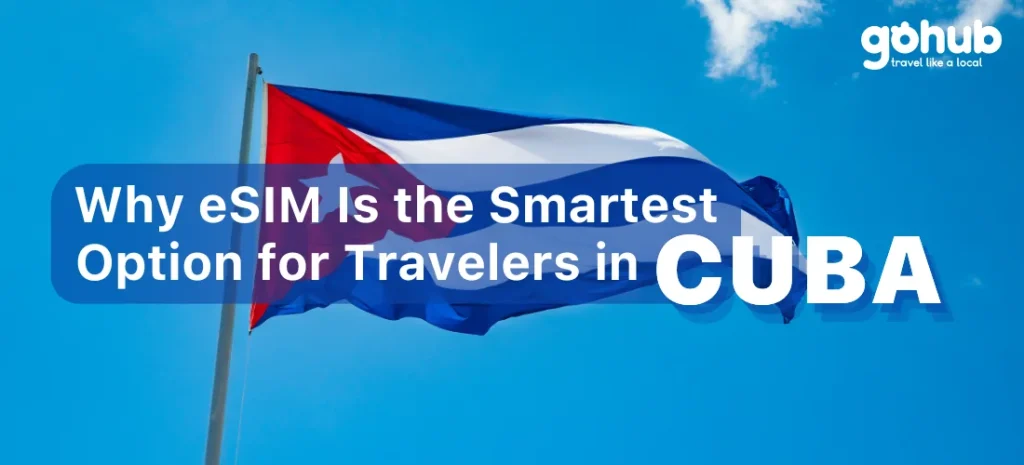
Cuba is one of the most fascinating destinations in the world — but when it comes to staying online, it’s also one of the most complicated. Between sky-high roaming fees, limited Wi-Fi zones, and a single-state network provider, travelers often find themselves offline when they need it most.
That’s why more and more visitors are turning to an eSIM for Cuba travel — the smartest, easiest way to stay connected in 2025.
Here’s why it just works:
✅ No SIM Card Swaps or Store Visits
eSIMs are 100% digital. No more fiddling with SIM trays or finding an ETECSA shop after a long flight. You can install your Cuba eSIM from home and have data ready to go the moment you land.
✅ Stay Connected on Your Terms
Unlike public Wi-Fi, which is tied to specific zones like hotel lobbies or parks, a prepaid eSIM gives you private internet access anywhere there’s mobile signal — even on the go. No more relying on scratch-off Wi-Fi cards or hoping a café hotspot works.
✅ Keep Your Home SIM Active (Safely)
Most modern phones let you use your eSIM and your physical SIM at the same time. That means you can keep receiving important texts (like 2FA codes or bank messages) on your home number, while using your Cuba eSIM for data.
⚠️ Just make sure you turn off data roaming on your home line to avoid surprise charges.
✅ Prepaid, Predictable Costs
Every Cuba eSIM plan is prepaid and transparent. No surprise roaming charges, no extra fees — you pay for a set amount of data and days, and that’s it. Plans start as low as $7.99 for 1GB.
✅ Travel Light, Travel Green
No plastic SIM cards. No packaging waste. Just a QR code sent to your email and installed on your phone. It’s a small step, but one that helps reduce your travel footprint.
✨ Want a Cuba eSIM you can install before you fly — with flexible data plans and support you can trust?
👉 Download the Gohub App and get online the moment your wheels touch down in Havana.
II. How Mobile Networks Work in Cuba (Spoiler: There’s Only One)
If you’re used to choosing between mobile providers like Globe vs Smart or Verizon vs AT&T, you’ll find Cuba… very different.
There’s no competition. No network battle.
Just one game in town: ETECSA.
Meet ETECSA — Cuba’s Only Cellular Provider
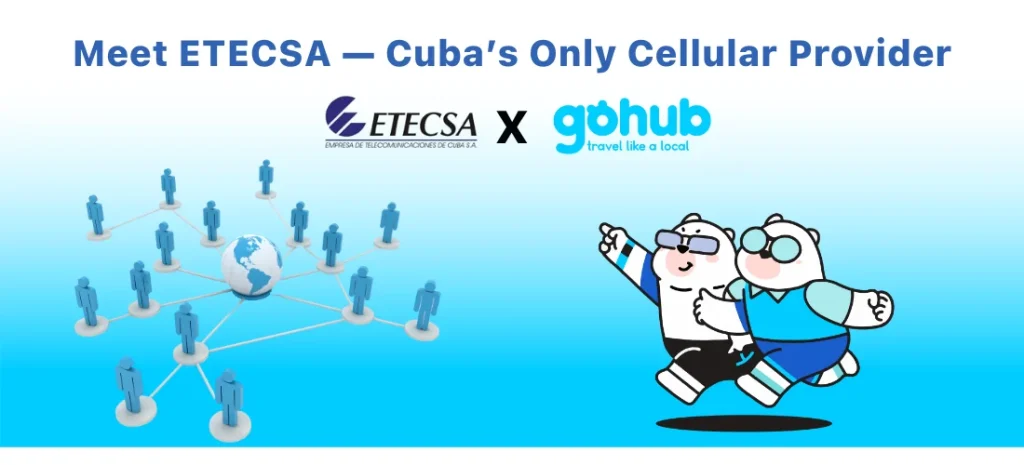
Empresa de Telecomunicaciones de Cuba S.A. (ETECSA) is the state-owned and only telecom company in Cuba. Every SIM card, eSIM, mobile tower, and data plan you’ll use in the country is routed through this single provider.
So, no matter which eSIM brand you buy — Kolet, GigSky, Nomad, GlobaleSIM — they all rely on ETECSA’s infrastructure via international agreements.
📶 That’s why it’s critical to pick an eSIM provider that has proven integration and support for the Cuban network.
What Kind of Mobile Coverage Can You Expect?
- 4G/LTE is available in Havana, Varadero, and other major cities
- In smaller towns, you may drop to 3G or even 2G
- 5G is not yet available for tourists (as of 2025)
- Coverage can be spotty indoors or in rural provinces — plan accordingly
No Local Number (And That’s Okay)
Because these are data-only eSIMs, you won’t get a Cuban phone number.
But that’s normal — almost no tourists do. Messaging apps like WhatsApp, iMessage, Telegram, and Skype are the go-to for communication here.
🧠 Tip: Some eSIM providers offer voice minutes via apps with a US or UK number — useful for business calls or receiving 2FA texts.
III. Best eSIM Providers for Cuba Travel
While every eSIM provider for Cuba connects through the same ETECSA network, they’re not all created equal. Pricing, data limits, speed caps, support, and activation experience vary widely — so choosing the right one depends on how long you’re staying and how much data you need.
Here’s a breakdown of the top Cuba eSIM providers for travelers in 2025:
🥇 Kolet – Best Value for Most Travelers
- Direct partnership with ETECSA
- Plans: 1GB, 3GB, 5GB (30-day validity)
- Tethering supported
- 24/7 support + discount code available
- 3GB for ~$24.49, 5GB for ~$38.49
🧳 Ideal for: Mid-length vacations or remote workers on a budget
GigSky – Best for Light Users & Short Trips
- Free 100MB trial
- Plans: 500MB–10GB (7, 15, or 30 days)
- “Unlimited” plans available (2.5GB/day at high speed, then throttled)
- 1GB starts at ~$7.99, 5GB around $25.49
🧳 Ideal for: Weekend travelers, cautious first-timers, or digital minimalists
Nomad – Flexible Plans + Clean App Experience
- Plans: 1GB to 10GB
- Daily reset high-speed usage (e.g. 1GB/day then throttled to 512kbps)
- Tethering supported
- UI-focused app, great for managing multiple trips
🧳 Ideal for: Frequent travelers using Nomad across destinations
GlobaleSIM – Best for Adding Voice or US Numbers
- Optional US (+1) number & call minutes via their app
- Plans: 1GB–20GB
- 24/7 in-app support
🧳 Ideal for: Travelers needing incoming calls or outbound business calls
Other Providers Worth Mentioning:
| Provider | Notes |
|---|---|
| Yesim | Offers “unlimited” plans (check FUP) |
| ByteSIM | Data-only, low-frills option |
| EZsim, Manet, Roamless | Varying price tiers & customer support |
| Airalo | ❌ Not available in Cuba as of 2025 |
✨ Want to compare the top Cuba eSIM plans all in one place — and install in minutes?
👉 Try Gohub for flexible eSIMs tailored to Cuba travel.
IV. How to Set Up Your Cuba eSIM Before You Fly
Unlike other destinations, Cuba isn’t the place to figure things out after landing.
Mobile internet is essential — and setting up your eSIM before your trip is the smartest way to avoid downtime, confusion, or digital silence.
Here’s how to prep like a pro:
1. Check If Your Phone Supports eSIM
Your device must be both:
- eSIM-compatible
- Carrier-unlocked
Most iPhones from XR onward, newer Samsung Galaxy S20+/Fold/Flip, Google Pixel 4+, and recent Huawei or Oppo models support eSIM. Not sure?
👉 Check our full eSIM-compatible device list
2. Choose and Purchase Your eSIM Plan
Pick a Cuba eSIM from providers like Kolet, GigSky, Nomad, or get one directly through Gohub for instant delivery and flexible plan comparison.
You’ll receive:
- A QR code via email
- Setup instructions (some providers use in-app installation instead)
3. Install the eSIM Profile on Wi-Fi
You must install the eSIM while connected to the internet — ideally using your home Wi-Fi before your flight.
iPhone:
Settings → Cellular → Add eSIM → Use QR Code or enter details manually
Android:
Settings → Network & Internet → SIMs → Add mobile plan
📌 Pro Tip: Don’t delete your eSIM after installing — it can’t be recovered.
4. Configure Before Takeoff
- Turn off mobile data on your home SIM
- Toggle ON data roaming for your new eSIM line
- Enable Airplane Mode when boarding — then activate your Cuba eSIM upon arrival
✈️ Travel-ready in 10 minutes — no lines, no guesswork
👉 Download the Gohub App to get your Cuba eSIM now, pre-installed and ready to connect.
V. What to Expect When You Arrive in Cuba
Your eSIM is installed. Your phone is ready. You’ve just landed in Havana.
Now what?
Here’s how to make sure your eSIM for Cuba travel activates smoothly — and what to do if it doesn’t.
1. Turn Off Airplane Mode and Enable eSIM Line
As soon as you’re on the ground:
- 📶 Turn off Airplane Mode
- ✅ Make sure your eSIM line is active (check Cellular Settings)
- ✅ Ensure Data Roaming is ON for the eSIM (don’t worry, it’s prepaid)
2. Wait for the Network to Connect
Your phone should automatically connect to ETECSA, Cuba’s only mobile network.
You’ll likely see a 3G or 4G icon in the status bar.
If you don’t connect within a few minutes:
- Toggle Airplane Mode on/off
- Restart your device
- Double-check that your eSIM is set as the active mobile data line
3. Common Issues (and How to Fix Them)
| Issue | What to Try |
|---|---|
| Shows signal, but no internet | Try a reboot or toggle roaming → off → on again |
| QR code not working | Contact eSIM provider’s support ASAP |
| Very slow speeds | Normal in some areas — try moving closer to town center |
| Some websites/apps not loading | This might be internet restriction (see VPN tips below) |
4. Don’t Forget: Cuba Has Internet Restrictions
- Messaging apps like WhatsApp, iMessage, Telegram usually work
- Some apps (banking, calling, VoIP) may be blocked or inconsistent
- That’s why it’s highly recommended to install a VPN before arrival
🧠 Pro Tip: Install a VPN app like NordVPN or Surfshark before you leave home — some won’t download once you’re in Cuba due to app store restrictions.
☑️ Already installed your eSIM, turned on roaming, and connected to ETECSA?
You’re officially online in Cuba — and you skipped the SIM shop line.
VI. How to Make Calls & Message with a Data-Only eSIM in Cuba
Most Cuba eSIMs for travelers are data-only, meaning they don’t come with a Cuban phone number or support traditional SMS and voice calls.
But that doesn’t mean you can’t communicate. Here’s how to stay in touch — smoothly and reliably — using just your eSIM and some smart apps.
Use Data-Based Messaging & Calling Apps
As long as you have a working data connection via your eSIM, you can use:
- WhatsApp – Voice, video, texts with end-to-end encryption
- Telegram – Great for group chats and voice calls
- iMessage & FaceTime – For iPhone-to-iPhone connections
- Zoom / Google Meet – For work or remote check-ins
- Skype / Viber / Messenger – For more flexibility across devices
✨ Most Cuban tour operators and Airbnb hosts use WhatsApp to communicate — it’s the unofficial national messaging app for travelers.
Need to Make Real Phone Calls?
If you absolutely need voice calling (e.g. business, banking), use one of these options:
| Option | How It Works |
|---|---|
| GlobaleSIM app | Offers a US phone number + call minutes via their app |
| Hushed (w/ Yesim or aloSIM) | Lets you rent a temporary international number |
| Rebtel / Talkatone | VoIP apps with cheap international calling rates |
| Skype Credits | Pay-per-minute international calls to landlines/mobiles |
Can I Receive 2FA Codes or SMS?
No — unless:
- You keep your home SIM active (dual SIM phones only)
- Or subscribe to a service like O2 SMS-only plan (UK number for receiving texts abroad)
If you need 2FA access while in Cuba:
- ✅ Keep your physical SIM active, but
- ❌ Turn off data roaming on your home line to avoid surprise fees
Summary:
| Need | Use This |
|---|---|
| Chat, photos | WhatsApp, iMessage |
| Voice/video calls | FaceTime, Skype, Zoom |
| Calls to Cuba | WhatsApp/Telegram (to locals) |
| Banking 2FA | Keep home SIM active (no roaming!) |
VII. Using VPNs in Cuba: How to Access the Full Internet Experience
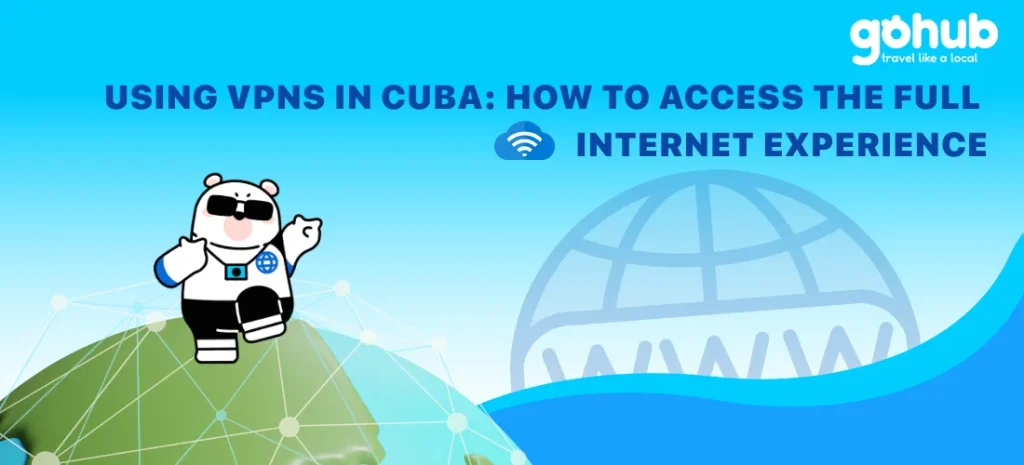
Even with your Cuba eSIM installed and data flowing, you might still hit frustrating limits.
Why? Because Cuba has government-imposed internet restrictions — some apps, websites, and services are blocked or unreliable.
Here’s how to beat the block and stay fully connected during your trip:
Why a VPN Is Essential in Cuba
A VPN (Virtual Private Network) encrypts your internet traffic and lets you connect through a server in another country — allowing you to:
- ✅ Access restricted apps (banking, calling, VoIP, cloud storage)
- ✅ Use VoIP calling apps (e.g. FaceTime, Zoom, WhatsApp calling) reliably
- ✅ Secure your connection on public Wi-Fi or hotel networks
- ✅ Avoid geo-blocks on streaming services or booking platforms
🎯 Many travelers report they couldn’t use Google Maps, App Store, or FaceTime until they activated a VPN.
Important: Download Before You Land
Due to US sanctions and Cuban restrictions:
- App stores may block VPN downloads once you’re on Cuban networks
- You might not be able to access your VPN provider’s website from inside Cuba
✅ That’s why it’s critical to install and set up your VPN before departure.
Recommended VPNs for Cuba Travel
| VPN | Why It’s Good |
|---|---|
| NordVPN | Reliable in Cuba, fast, easy mobile UI |
| Surfshark | Affordable, unlimited devices |
| ExpressVPN | Works well even on slower networks |
| ProtonVPN | Privacy-focused, has a free plan |
Pro Setup Tips
- Turn VPN on as soon as you land — before opening any apps
- Set server to USA, Canada, or Spain for smoothest performance
- Some networks may throttle VPN traffic during peak hours — test multiple servers
📌 TL;DR: Want your Cuba eSIM to work like it would in Mexico, Thailand, or Italy?
→ Pair it with a good VPN and you’ll be golden.
VIII. Special Considerations for US Travelers Using eSIMs in Cuba
If you’re traveling to Cuba from the United States, there are a few extra things to keep in mind — due to long-standing U.S. sanctions and platform restrictions.
Don’t worry — you can use an eSIM for Cuba travel as an American, but there are smart steps to take before you board that flight.
App Store Restrictions While in Cuba
Once you’re physically in Cuba, you might lose access to key services like:
- Apple App Store & Google Play Store (U.S. region)
- Some banking apps or map services
- VPN provider websites
🛡️ Solution:
Download everything you might need before you go, including:
- Your eSIM QR code or app
- A working VPN (e.g., NordVPN, Surfshark)
- Offline maps (Google Maps offline or Maps.me)
- Messaging apps (WhatsApp, Telegram)
Device Unlock Required
Make sure your phone is carrier-unlocked.
Most major U.S. carriers (Verizon, AT&T, T-Mobile) lock phones until the end of a contract or 60–90 days after activation.
🎯 Not sure? Contact your carrier and confirm it’s unlocked for international eSIMs.
US eSIM Providers May Not Work
Many popular U.S.-based eSIM providers (e.g., T-Mobile International Pass, Google Fi, or Airalo) do not support Cuba due to embargo-related limitations.
Instead, choose providers like:
- ✅ Kolet, GigSky, Nomad, GlobaleSIM
- ✅ Or go with a global travel eSIM via Gohub — with full Cuba coverage and no U.S. platform restrictions
Also: Prepare for 2FA Challenges
Since most Cuba eSIMs are data-only, you won’t receive SMS-based two-factor authentication (2FA) texts unless you:
- Keep your U.S. SIM line active (in dual-SIM mode), OR
- Use an SMS-only service like O2 UK SMS plan or Hushed (VoIP workaround)
Be sure to:
- Disable data roaming on your U.S. SIM
- Test your 2FA apps/logins before leaving
✅ Summary for U.S. Travelers:
| Tip | Action |
|---|---|
| Device unlocked? | ✔ Check with carrier |
| Download VPN + eSIM before flying | ✔ Essential |
| Use global eSIM provider (not Airalo or Google Fi) | ✔ Gohub recommended |
| Use dual-SIM or VoIP workaround for SMS | ✔ Optional but helpful |
IX. Other Options: Physical SIMs, Public Wi-Fi & Roaming (And Why eSIM Still Wins)
Not sold on eSIM yet? Let’s quickly explore the alternatives — and why they often fall short for most travelers visiting Cuba.
Physical SIM Cards from ETECSA
Yes, you can buy a traditional SIM card in Cuba, but…
- Only sold at ETECSA offices, often with long queues
- Requires passport, may involve registration delays
- Typically $30–$35 USD for SIM + basic data
- Sometimes hours to activate, especially in busy hubs
- Needs a SIM swap — you’ll lose access to your home number
Verdict: Better for long-term stays or expats — not great for short trips
Public Wi-Fi Cards (Nauta)
Cuba has government-run Wi-Fi hotspots… but they’re not what you’d call seamless.
- Buy scratch cards from ETECSA ($1–$2/hour)
- Only work in designated parks, hotels, and public zones
- Speeds are slow and inconsistent, especially evenings
- You’ll often share bandwidth with dozens of locals
Verdict: Okay for the occasional message, but not for navigation, uploads, or video calls.
International Roaming
You’re brave if you even try this.
- Costs up to $2–$10 USD per MB (not GB — MB!)
- Many US and EU providers block roaming in Cuba entirely
- Downloading a single email attachment could cost $20+
Verdict: Avoid at all costs unless you enjoy burning money.
Why eSIM Still Wins
| Feature | eSIM | Physical SIM | Wi-Fi Card | Roaming |
|---|---|---|---|---|
| Buy before you fly | ✅ | ❌ | ❌ | ❌ |
| Works instantly on arrival | ✅ | ❌ | ❌ | ✅/❌ |
| Supports mobile apps anywhere | ✅ | ✅ | ❌ (hotspot only) | ✅ |
| Keeps home number active | ✅ | ❌ | ✅ (if on Wi-Fi) | ✅ |
| Transparent pricing | ✅ | ❌ | ❌ | ❌ |
🏆 TL;DR: eSIM = best mix of freedom, flexibility, and affordability in Cuba
👉 Get your Cuba eSIM now with Gohub — install before you fly, connect the moment you land.
X. Conclusion: The Smartest Way to Stay Online in Cuba
Staying connected in Cuba doesn’t have to mean hunting down scratch cards, battling ETECSA queues, or risking sky-high roaming fees.
In 2025, the smartest — and honestly, the simplest — way to stay online in Cuba is by using a prepaid travel eSIM.
You’ll get:
- ✅ Instant connectivity on arrival
- ✅ Fair, upfront pricing (no surprises)
- ✅ No SIM swapping or registration hassle
- ✅ The freedom to use your favorite apps anywhere, anytime
- ✅ The ability to keep your home SIM active (hello 2FA!)
Whether you’re exploring Old Havana, catching sunset in Viñales, or working remotely from a casa particular, your eSIM keeps you connected — without stress, queues, or broken Wi-Fi.
✈️ Ready to travel light and stay connected?
👉 Download the Gohub App to compare plans, buy your eSIM, and get online in Cuba — all before you even board your flight.


